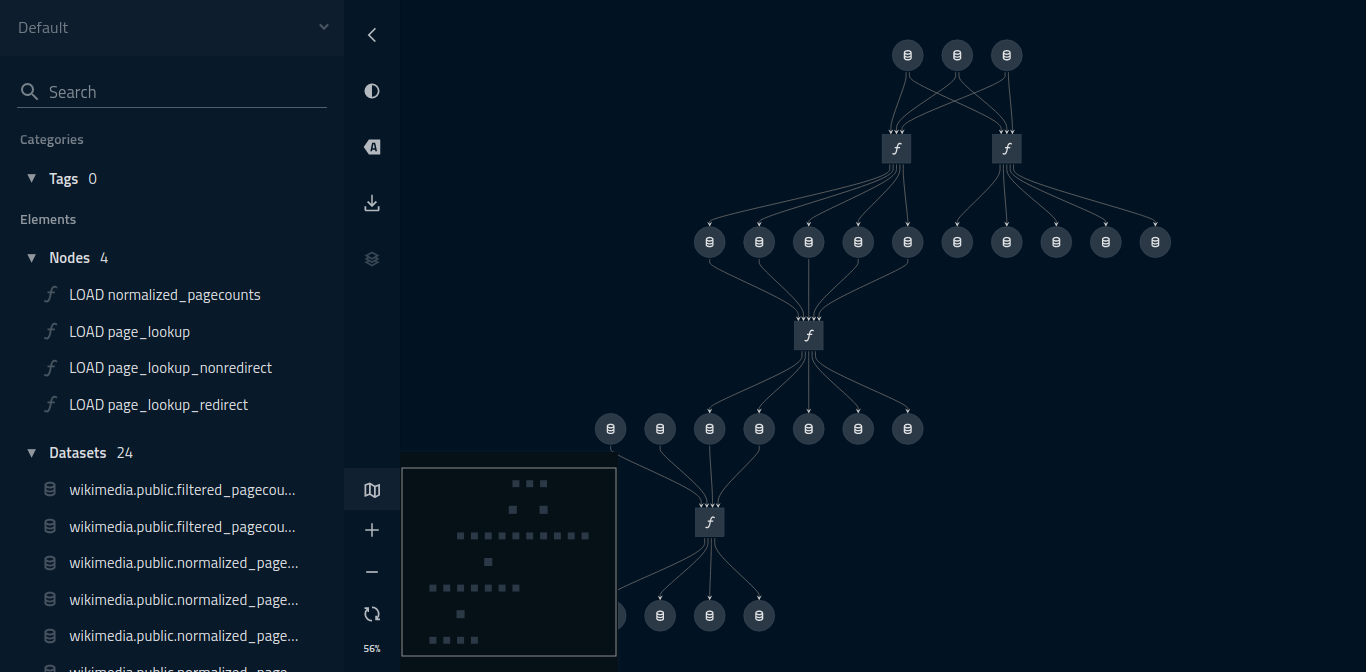Query Parsing
Overview
This example demonstrates how to scan query history from a data warehouse and save it in the Tokern Lineage engine. The app automatically parses and extracts data lineage from the queries.
The example consists of the following sequence of operations:
- Start docker containers containing a demo. Refer to docs for detailed instructions on installing demo-wikimedia.
- Scan and send queries from query history to data lineage app.
- Visualize the graph by visiting Tokern UI.
- Analyze the graph
Download queries for the wikimedia demo from Github
Install Wikimedia demo
This demo requires wikimedia demo to be running. Start the demo using the following instructions:
# in a new directory run
wget https://raw.githubusercontent.com/tokern/data-lineage/master/install-manifests/docker-compose/wikimedia-demo.yml
# or run
curl https://raw.githubusercontent.com/tokern/data-lineage/master/install-manifests/docker-compose/wikimedia-demo.yml -o docker-compose.yml
Run docker-compose
docker-compose up -d
Verify containers are running
docker container ls | grep tokern
# Required configuration for API and wikimedia database network address
docker_address = "http://127.0.0.1:8000"
wikimedia_db = {
"username": "etldev",
"password": "3tld3v",
"uri": "tokern-demo-wikimedia",
"port": "5432",
"database": "wikimedia"
}
from data_lineage import Catalog
catalog = Catalog(docker_address)
# Register wikimedia datawarehouse with data-lineage app.
source = catalog.add_source(name="wikimedia", source_type="postgresql", **wikimedia_db)
# Scan the wikimedia data warehouse and register all schemata, tables and columns.
catalog.scan_source(source)
# Read queries from a json file. Note that this is for demo only
with open("queries.json", "r") as file:
queries = json.load(file)
from datetime import datetime
from data_lineage import Analyze
analyze = Analyze(docker_address)
for query in queries:
print(query)
analyze.analyze(**query, source=source, start_time=datetime.now(), end_time=datetime.now())
Visit Kedro UI
